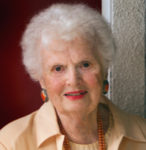By Natasha Josefowitz, ACSW, Ph.D.

LA JOLLA, California — The 1970s were a wonderful time to be in academia. I was well ensconced as a faculty member in the Whittemore College of Business and Economics (WSBE) at the University of New Hampshire. The years in Durham, New Hampshire, were happy ones for Herman and me; we did everything together. He was unwaveringly supportive. I was integrated into the university and had the freedom to be innovative, both on my home turf and away.
In 1979, a representative of a publishing house, Addison-Wesley, was asking secretaries at WSBE, what they were working on. My secretary showed him the outline of my course on women in management. The next thing I knew, I was signing a contract for a book I was not writing. My first book, Paths to Power: A Woman’s Guide from First Job to Top Executive (Addison Wesley) was written chronologically based on my class syllabus. I was fortunate to have the first and only book dealing with women in organizations. The book was adopted by over one hundred universities and colleges, both nationally and internationally, and was translated into several languages. The book became a best seller in 1980.
I was thrust into the limelight as one of the early feminists dealing with issues encountered by women working in organizations. I remember my first TV interview. I was nervous, never having been in a TV studio. I drove to Boston from New Hampshire. Upon arriving at the studio, I was introduced to the host and was told we had five seconds before starting. My heart was pounding when his first comment was “I don’t like the title of your book. I don’t believe women should want power. They should stay home and take care of their families.” As you can imagine, I was taken aback. My response was “I am so glad you said that. My book is written for you; you are exactly who needs to read it.” I went on to explain what my book was about, in particular, the chapter dealing with exactly his kind of mindset.
My first radio interview was with Larry King. We pulled an all-nighter. He started our session with “I did not read your book. I do not know why you are my guest and neither does my audience., so it is up to you to set us straight.” Well, this was precisely the type of challenge which permitted me to put forth the reasons for writing the book.
My third interview was appearing on TV with Dr. Ruth; she was a kick. She came rushing in at the last minute before our live interview was about to start. She looked at me questioningly as if it was for me to start, so I did. “Dr. Ruth, I said, you talk about sex and how to do it at home. I want to talk about sex and how not to do it at the office.” That segment was rebroadcast numerous times.
There was a backlash from the men who had enjoyed the privacy of male jokes, cartoons, and locker room humor. Now, all of a sudden, it was deemed inappropriate to make any sexy remarks in front of women colleagues. It was a time of confusion about new expected behaviors. The Women’s Movement brought to light some of the ways women were responding to their new roles in the workplace. Should a man open the door for a woman? Or would she be offended because she can open her own door? Guidelines were needed to deal with the confusion of women entering the workforce in droves. I wanted to help and accepted consulting opportunities with various government agencies such as the FBI, the CIA, the California Chiefs of Police, and U.S. Postal Service, as well as in industry including General Dynamics, Teledyne Ryan, National Cash Register (NCR), General Motors of Canada, etc. I was surprised that I was considered to be an expert in this new field. However, at that time, there was no one else specifically dealing with women integrating into formerly male-dominated organizations. Often there was initial hostility from the men, who were asked to attend my workshops.
I started writing humorous verse to help relax the atmosphere, for instance, these two lines: “He taught her everything he knew. Now that she knows as much as he does, he doesn’t like it.” The ensuing laughter eased the tension in the audience. I had compassion for the men, who had to learn new behaviors and deal with their confusing feelings, to help them accept women as colleagues in the workplace. Using humor in poetry is a wonderful stress reducer.
© Natasha Josefowitz. This article appeared initially in the La Jolla Village News. You may comment to natasha.josefowitz@sdjewishworld.com